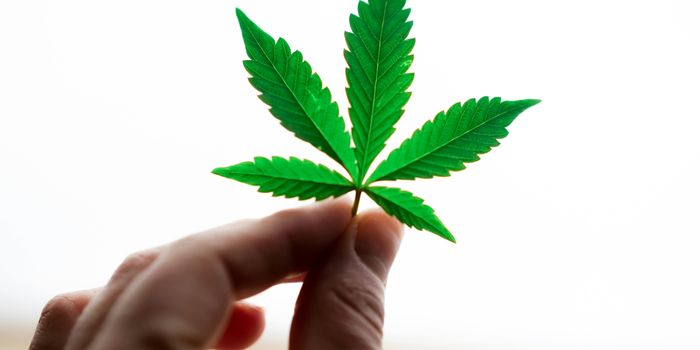Cannabis and Mental Health In Adolescents
While we often talk about the benefits of medical cannabis, as with any drug, cannabis use also presents some safety concerns. Some who use cannabis (medical or recreational) may experience paranoia, anxiety, or even psychosis. These side effects are very troublesome for those who experience them and may lead to discontinuation of use. Of course, everyone reacts differently to cannabis – and it may be your genetics or the strain or dose consumed that cause these effects. However, many studies have shown a link between early cannabis use and a later diagnosis of bipolar disease or schizophrenia. This association is one of several reasons why anti-cannabis legislature has remained in place. But is this evidence really strong enough to warrant serious concern? Let’s take a look at the literature to date.
Early Cannabis Use
Although many teens experiment with cannabis, most do not consume cannabis regularly. However, those who do consume cannabis more than weekly may be at risk of developing cannabis dependence. This can be problematic, as chronic cannabis users can experience withdrawal symptoms when they try to discontinue use and may end up taking other drugs instead, as the effects of THC begin to decrease. Although most people who consume cannabis do not become dependent (there is a 10% risk of developing dependence which is less than that for alcohol, nicotine, and opiates), cannabis dependence is often cited as the reason why cannabis should be considered a “gateway drug” to other types of drug use. However, there is a lack of strong evidence indicating that those who use cannabis at a young age will end up using other drugs, as there are many confounding variables that could also explain this behavior. But, what about the link to mental health?
Risk of Schizophrenia or Bipolar Disorder
A study published in the Lancet in 1987 first reported a link between cannabis use and the development of schizophrenia in a group of over 45,000 people. Many other studies that followed have found a similar link, identifying cannabis use as an independent risk factor for the development of psychosis. Recent findings have also implicated early cannabis use in the later diagnosis of bipolar disorder. In a study of over 6,000 cannabis users, nearly half converted to either schizophrenia or bipolar disorder; in addition, younger cannabis use was associated with a significantly higher risk of converting to schizophrenia. Another study of over 3,000 people found that those who used cannabis at least 2-3 times weekly at age 17 had a significant risk of later developing hypomania. Since this evidence is pretty strong, let’s talk about why this might be.
Cannabis: Friend or Foe to Adolescents?
Before we go on to discuss what might cause the link between early cannabis use and psychosis, it’s important to note that all legalized states with medical (or recreational) cannabis is for 21+ only. This means that people under the age of 21 cannot legally buy or use cannabis (parents must purchase medical cannabis for their children). Although this is partially meant to protect people from these mental health concerns, it certainly does not stop teens from buying it on the street. Which brings me to the first point of discussion – these studies have been observational in nature, meaning that data from individuals were collected over time and then analyzed to reveal any associations.
While observational studies can provide great insights, they can only report on associations, not direct links. In addition to this important caveat, you should keep in mind that individuals in this study likely used cannabis they bought off the street, not legalized cannabis. Therefore, we cannot know which stains or doses contributed to the later development of psychosis. Controlled studies could shed further light on how certain strain types or THC:CBD ratios may contribute to this risk.
Cannabis use may also be higher in those who later develop psychosis because they were self-medicating. Although schizophrenia is not usually diagnosed until the early 20s, symptoms may appear sooner but may not be noticeable. Thus, teens may be trying to manage their symptoms before they realize something is wrong.
If there is a direct link between cannabis use and psychosis, as the literature suggests, it may in fact be caused by changes in the brain that occur over long-term use. The brain continues to develop into the late teens/early 20s and regular cannabis use during this time period can certainly affect the brain on a cellular and molecular level, possibly leading to the later development of psychosis and other mental health problems.
Should Adolescents Use Medical Cannabis?
So, the main question stemming from this research is regarding medical cannabis use – should adolescents use medical cannabis if there is a risk of later developing psychosis? This is certainly a difficult question to answer, since, as mentioned, most studies to date have been observational in nature and have analyzed those who likely used cannabis they bought off the street – not professional-grade medical cannabis. However, despite these caveats, if you have concerns about your child using medical cannabis, you should certainly discuss this issue with their doctor or consult a psychiatrist. It’s very important to be completely comfortable with the decision to treat your child with medical cannabis for any condition.
Further research is certainly needed to determine whether there is a direct link between cannabis use and psychosis and, if so, whether this association may be specific to certain strains or doses of cannabis. Until then, remain an active and engaged user and look to the science for more answers.








